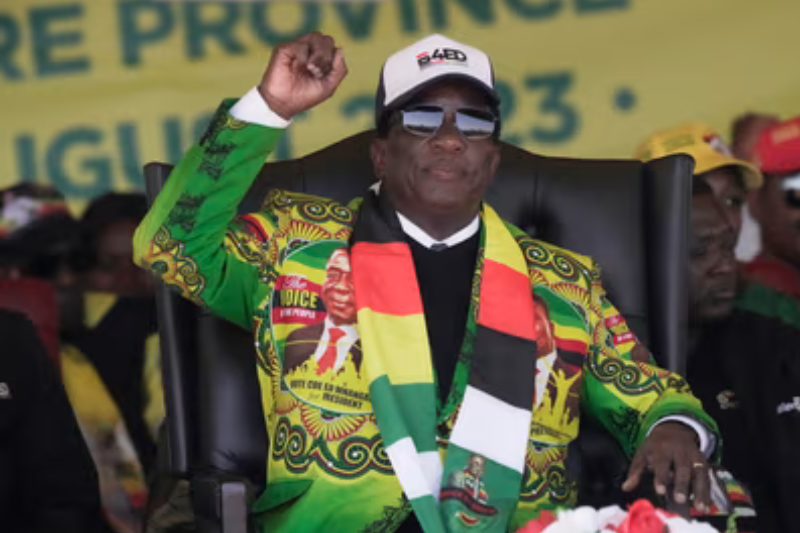With the nation’s economy in decline, the prospect of another election in Zimbabwe looms large over the country’s decision-making process as voters prepare for it. In a high-stakes political match, President Emmerson Mnangagwa faces off against his charismatic opponent, Nelson Chamisa.
Following the overthrow of longtime leader Robert Mugabe in a coup, President Mnangagwa was elected on promises of economic revival and advancement five years ago.
Nonetheless, the nation is still dealing with issues including inflation, unemployment, and the depreciation of the dollar. In a crucial contest for leadership, the incumbent is up against Chamisa, the inexperienced head of the Citizens Coalition for Change.
In their dreams of a better future, residents of poor townships in the center of Harare braved enormous lines to cast their ballots at polling places well in advance of the polls’ opening. With his bold promises, Chamisa hopes to turn around the country, fight corruption, bring Zimbabwe back into the international community, and ensure that employees receive a minimum wage in US dollars. However, Mnangagwa brags about his accomplishments in building infrastructure and says that a new administration will bring forth much more riches for the nation.
Early in the new millennium, international sanctions against Mugabe’s government made Zimbabwe’s economic collapse worse. Though it was formerly referred to as the breadbasket of southern Africa, a significant section of the population suffers from hunger, and unemployment and poverty are still widespread issues.
It is anticipated that 6.6 million Zimbabweans will cast ballots in the elections, one million of whom will be first-time voters who have never known a rich Zimbabwe. Notwithstanding the lingering effects of Mugabe’s 37-year dictatorship, the populace’s desires for a working economy and respectable employment are unwavering.
Keep Reading
Fears of violence and voting suppression have surfaced in the run-up to the polls. Observers anticipate increased voting turnout in spite of opposition reports of crackdowns. The nation’s history of contentious and violent elections has left its imprint; problems with the process still exist, including skewed media coverage, disparities in voter registration, and claims that law enforcement has hampered opposition campaigns.
Supporters of Chamisa have been steadfast in their enthusiasm, emphasizing their desire for change. Many people have responded favorably to the CCC leader’s pledges to solve important concerns like election transparency and his assurances of non-violence.
On election day, emotions and excitement were high when polls opened at 7 a.m. Securing more than 50% of the vote and two-thirds of the parliamentary seats—a substantial victory threshold—will decide the result of this election.
Zimbabweans must make a decision at this critical juncture that goes beyond party affiliations and affects their nation’s course toward progress, recovery, and international reintegration. Voters now feel compelled to demand real change from their leaders due to the years-long economic challenges that have plagued the country.
On this crucial election day, Zimbabwe’s future is in jeopardy as the sun sets. The country’s decision will have an effect not only on its neighbors but also on the continent of Africa and beyond. Which will prevail—Mnangagwa’s assertions of progress or Chamisa’s pledges of renewal? When Zimbabwe moves one step closer to determining its own future, only time will tell how things turn out.

